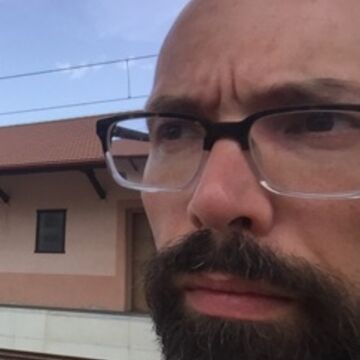

Nathan Hoks
Assistant Professor, Adjunct
Contact
Bio
BA, 2000, Loyola University Chicago; MFA, 2003, University of Iowa; MA, 2005, University of Wisconsin - Madison. Books: Reveilles, Arctic Poems (translation); The Narrow Circle, Moony Days of Being, Nests in Air. Publications: Denver Quarterly Review, Poetry Foundation, Writer's Chronicle, Fence, Bat City Review, Colorado Review, Conduit, Northwest Review, Bennington Review, Columbia Journal, Harvard Review, Crazyhorse, Columbia Poetry Review, jubilat, Lit, Agni Awards: Tomaž Šalamun Prize; National Poetry Series; Crashaw Prize; Linda Hull Memorial Poetry Prize; Millay Colony for the Arts Residency; Vermont Studio Center Residency.
Personal Statement
My student-centered mentoring process develops via conversation, a mutual process of listening and responding. I like to think of writing itself as a conversation—a text might converse with historical texts, with the writer, with readers, and (especially) with itself. Like any good conversation, we can’t have an exact idea of where we’re headed. The end point, if there is one, is discovered collaboratively through a process that involves imaginative listening and responding. In my own work, I draw on strategies to decenter the position of the artist (automatic writing, collage, procedures, willful amnesia, and rhythmic exercises) in order to give agency to writing itself. Some of my interests include Dada, Surrealism, and New York School poets. I am also a letterpress printer and publish handmade chapbooks with Convulsive Editions.